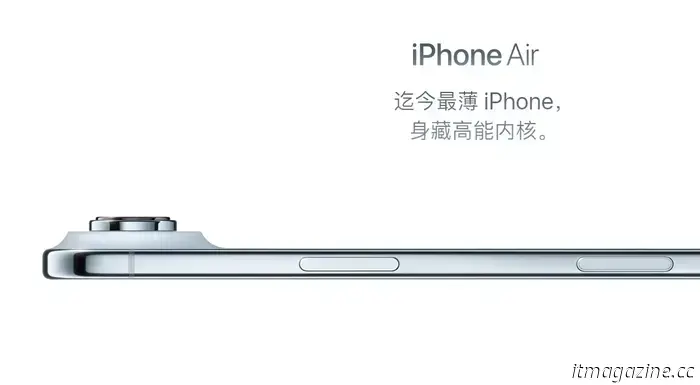
Three leading Chinese mobile operators have embraced eSIM technology for the iPhone Air, indicating a potential shift away from physical SIM cards.
Credit: Apple
Apple has introduced its first eSIM-only ultra-slim smartphone, the iPhone Air, on Wednesday, drawing attention to the eSIM strategies of China's telecom operators. China Unicom has become the first carrier to offer support for the new device, while China Mobile and China Telecom announced they are expediting regulatory approvals and system integration to launch the service.
Why this is significant: An eSIM is a digital Subscriber Identity Module embedded in a device that enables users to start a mobile plan without a physical SIM card. The eSIM-only design of the iPhone Air not only facilitates China's move towards digital SIM technology but also poses a challenge to the conventional use of physical SIMs.
Details: The three main mobile operators in China—China Mobile, China Unicom, and China Telecom—are the primary providers of mobile, broadband, and data services in the country.
As stated on Apple’s website, the iPhone Air currently only supports eSIM activation in mainland China through China Unicom. Users need to visit a China Unicom store with their ID, where staff will assist them with identity verification and the activation of the eSIM number.
Regarding eSIM support for the iPhone Air, China Telecom indicated that its eSIM mobile service is fully ready and is anticipated to be available to users shortly after it obtains official commercial trial approval from the Ministry of Industry and Information Technology.
China Mobile mentioned that it already provides eSIM mobile services and will share additional information about service availability soon.
Context: Information regarding the iPhone 17 series from Apple is not yet available in the Chinese market and is anticipated to be launched through a system update no earlier than the end of 2025, although the specific timeline remains uncertain.
This delay is attributed to two main reasons: the need to meet localization and regulatory compliance, as Apple must adhere to Chinese data localization and privacy laws while collaborating with local partners, which is a time-consuming process; and challenges in technical integration, as Apple is working with Alibaba and Baidu to introduce AI features, necessitating extensive adaptation and testing.
Jessie Wu is a tech reporter located in Shanghai. She covers consumer electronics, semiconductors, and the gaming sector for TechNode. Reach out to her via e-mail: [email protected].

Three leading Chinese mobile operators have embraced eSIM technology for the iPhone Air, indicating a potential shift away from physical SIM cards.
Apple's introduction of its initial eSIM-only ultra-slim phone, the iPhone Air, on Wednesday has highlighted the focus on China's telecom providers and their eSIM offerings.

